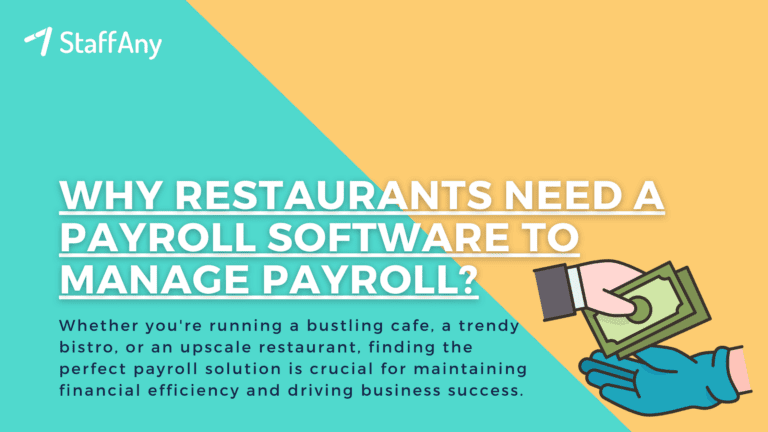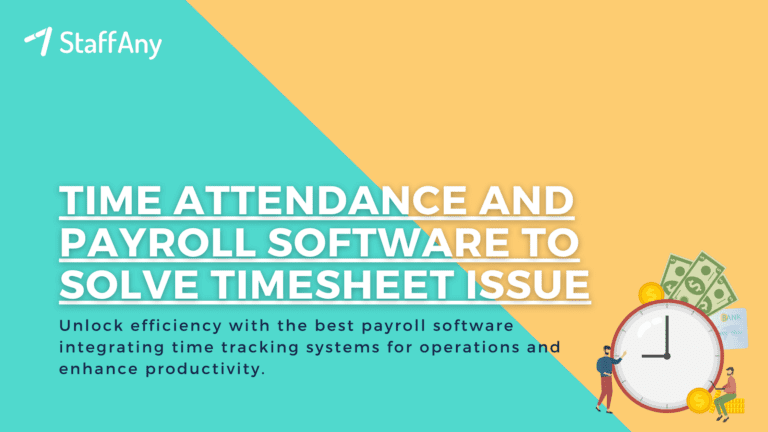In the ever-evolving landscape of entrepreneurship, the concept of franchising has become increasingly prominent. Whether you’re considering starting your own business or looking to invest in a proven model, understanding what is franchise business and how it operates is crucial.
In this article, we will uncover what is franchise business, its purpose, the advantages and disadvantages it offers, and even highlight some popular Food and Beverage (F&B) franchises in Malaysia. Let’s get started!
What is a Franchise?

Franchise is a business arrangement where one party, known as the franchisor, grants another party, the franchisee, the right to operate a business using its established brand, products, and services. In return, the franchisee pays fees or royalties to the franchisor, adheres to set operational standards, and follows the established business model.
This arrangement allows the franchisee to benefit from the franchisor’s successful business model, brand recognition, and ongoing support. Essentially, it’s a partnership where the franchisor provides the blueprint for running a business, and the franchisee executes it within a specified territory or location.
Franchising has become a prevalent business model across various industries, from fast-food restaurants to retail stores and even service-based businesses. It offers a unique opportunity for individuals to become business owners while leveraging the strength of an established brand and proven system.
Read more: The Overview of Food and Beverage Industry in Malaysia
Franchise Act in Malaysia
The concept of franchising has evolved over time, and in Malaysia, it is regulated by the Franchise Act of 1998. However, on 28 April 2022, significant changes were introduced through the Franchise (Amendment) Act 2020 (“Amendment Act”). These amendments have brought about crucial alterations to the franchise landscape in Malaysia.
These amendments aim to enhance the regulation of franchising in Malaysia, ensuring fairness and transparency in franchise operations while providing legal clarity for both franchisors and franchisees. It’s essential for all stakeholders involved in franchising to be aware of and comply with these updated provisions. Here are some key amendments to the Act:
1. Registration Requirement for Foreign Franchisors
Previously, foreign franchisors needed approval under Section 54 of the Act to sell a franchise in Malaysia. Now, in addition to this approval, they are also required to register with the Registrar of Franchise under Section 6 before making an offer to sell a franchise in Malaysia. However, foreign franchisors who obtained approval under Section 54 before the Amendment Act came into force are deemed to have registered under Section 6, according to transitional provisions.
2. Registration by Franchisees
The Amendment Act introduces an offence if a franchisee of a foreign franchisor or a franchisee of a local franchisor fails to obtain registration under Sections 6A or 6B, respectively.
3. Term of Franchise Registration
Previously, franchise registration remained effective unless suspended, terminated, or cancelled by the Registrar. Under the new Regulations, franchise registration is now valid for five years. The Amendment Act also allows franchisors to apply for renewal of the registration within 30 days from its expiration.
4. Display of Registration of Franchise
Franchisors and franchisees are now required to prominently display the registration of the franchise at their place of business. Non-compliance with this requirement constitutes an offence under the Act.
5. Requirements of Franchise Agreement
Section 18 of the Act mandates that a franchise agreement must be in writing and specifies minimum terms to be included. While non-compliance with these requirements will no longer render the agreement null and void under the Amendment Act, it is now considered an offence.
6. Regulations
New regulations were introduced to govern appeals against decisions by the Registrar. Existing regulations were amended to provide for compoundable offences, set qualifications for franchise brokers and consultants, and amend the schedule of forms and fees required to be submitted with the Registrar.
Read more: The Importance of Workplace Safety in F&B
Advantages and Disadvantages of Franchises
Franchise, like any other business model, comes with its own set of pros and cons. These aspects should be carefully considered by potential franchisees and franchisors alike. Understanding these advantages and disadvantages is essential for individuals considering franchising as a business opportunity. It allows potential franchisees to make informed decisions based on their goals, resources, and tolerance for risk. Let’s explore them in detail:
Advantages
First, let’s delve into the advantages of franchising, which can make it an attractive business option for many.
- Proven Business Model: Franchises offer the advantage of a proven and successful business model. Franchisors have already tested their concept and fine-tuned their operations, reducing the risks associated with starting a new business from scratch.
- Established Brand: Franchisees benefit from an established brand name and reputation. This recognition can attract customers more effectively than a new, unknown business.
- Training and Support: Franchisors typically provide comprehensive training and ongoing support to franchisees. This support can include assistance with marketing, operations, and staff training, helping franchisees run their businesses effectively.
- Economies of Scale: Franchises often benefit from economies of scale. As part of a larger network, they can negotiate better deals with suppliers, access bulk purchasing discounts, and reduce operational costs.
- Marketing and Advertising: Franchisors usually handle national or regional marketing and advertising campaigns, which benefits all franchisees. This collective effort can increase brand visibility and attract a broader customer base.
- Proven Success: Franchises come with a track record of success. Prospective franchisees can review the performance of existing outlets to assess the potential profitability of the business.
- Supportive Community: Franchisees become part of a community of like-minded entrepreneurs. They can benefit from sharing experiences and best practices with other franchisees in the network.
Read more: 15 Effective Marketing Strategies for Food Business
Disadvantages
Similarly, it’s important to examine the disadvantages associated with franchising to make informed decisions in the world of business partnerships.
- Franchise Fees and Royalties: Franchisees are required to pay initial franchise fees and ongoing royalties to the franchisor. These fees can reduce profit margins and impact the franchisee’s financial performance.
- Limited Independence: Franchisees must adhere to the franchisor’s rules and standards. This limits their independence in decision-making, including product offerings, pricing, and marketing strategies.
- Competition with Fellow Franchisees: In some cases, franchisees may find themselves in direct competition with other franchisees of the same brand within the same geographical area. This can lead to challenges in attracting customers.
- Exit Restrictions: Exiting a franchise agreement can be complicated and may involve financial penalties. Franchisees may have limited options if they wish to sell their business or terminate their franchise.
- Cost of Entry: While franchising can be less risky than starting a business from scratch, the initial cost of entry can still be substantial. This includes franchise fees, equipment purchases, and lease agreements.
- Uniformity Requirements: Franchisors enforce uniformity across their franchise network to maintain brand consistency. This may limit a franchisee’s ability to adapt to local market preferences.
- Profit Sharing: Franchisees are required to share a portion of their profits with the franchisor through ongoing royalties. This reduces the franchisee’s overall earnings.
Read more: 8 Training Program for Restaurant Staff Productivity
8 Popular F&B Franchises in Malaysia
Malaysia’s vibrant F&B scene is enriched by a diverse array of franchises, catering to a wide range of tastes and preferences. These franchises have not only gained recognition but have also contributed significantly to the country’s culinary landscape. Let’s take a closer look at some of the most well-known F&B franchises in Malaysia.
1. Ayam Penyet AP
Ayam Penyet AP has established itself as a popular destination for lovers of Indonesian cuisine in Malaysia. What sets it apart is its signature dish, the “Ayam Penyet” – a generous serving of crispy fried chicken that’s expertly paired with fragrant rice and a fiery sambal sauce. This delightful combination of textures and flavours has won the hearts of many Malaysians who appreciate the bold and authentic taste of Indonesian cuisine.
2. Dave’s Deli
Dave’s Deli is a go-to choice for those seeking hearty and comforting Western-style meals. The franchise is renowned for its succulent roast chicken, tender steaks, and a variety of delectable sides like mashed potatoes and coleslaw. With its warm and welcoming ambiance, Dave’s Deli provides a relaxed setting for families and friends to enjoy wholesome, satisfying meals together.
3. Sakae Sushi
Sakae Sushi has revolutionised the way Malaysians experience Japanese cuisine. This franchise offers a diverse menu of sushi creations, ranging from classic nigiri to innovative rolls. What makes it particularly appealing is the conveyor belt sushi concept, which allows diners to select their favourite dishes as they glide past on a conveyor belt. It’s an interactive and enjoyable dining experience for sushi enthusiasts.
4. OLDTOWN White Coffee
OLDTOWN White Coffee is a household name in Malaysia, known for its unique blend of white coffee. The franchise’s signature beverage combines coffee beans and creamy milk to create a rich and aromatic coffee experience. Beyond coffee, OLDTOWN offers a menu of Malaysian favourites, including nasi lemak and curry mee, making it a popular choice for breakfast and casual dining.
5. The Chicken Rice Shop
The Chicken Rice Shop pays homage to Malaysia’s beloved Hainanese chicken rice. This franchise serves up succulent chicken paired with fragrant rice, complemented by an array of delicious side dishes like Hainanese chicken curry and Nyonya laksa. It’s a taste of Malaysia’s culinary heritage and a go-to spot for those craving authentic local flavours.
Read more: 10 Current Issues in Food and Beverage Industry in Malaysia
6. Secret Recipe
Secret Recipe is not just about cakes and desserts; it offers a diverse menu that spans international and local dishes. From pasta and sandwiches to Malaysian favourites like nasi lemak, Secret Recipe caters to a wide range of palates. Its wide selection of delectable cakes and desserts also makes it a popular choice for those with a sweet tooth.
7. 4 Fingers
4 Fingers brings a Korean twist to the fast-food scene in Malaysia. Known for its Korean-style fried chicken, this franchise offers crispy and flavourful chicken wings and drumettes. What sets it apart is the range of tantalising sauces available, including soy garlic and hot sauce, allowing diners to customise their chicken experience. It’s a fast-food choice that packs a punch of Asian-inspired flavours.
8. Roti Boy
Roti Boy has reimagined traditional Malaysian bread with its signature “Roti Bun.” These buns are known for their unique blend of sweet and savoury flavours, with a buttery, coffee-infused topping that’s both fragrant and indulgent. The enticing aroma of freshly baked Roti Buns is hard to resist, making it a popular choice for a quick snack or breakfast on the go.
Read more: 5 Examples of Food Service Industry in Malaysia
Now, have you understood what is franchise business? As you explore the world of franchising and consider the enticing array of Food and Beverage (F&B) franchises in Malaysia, it’s crucial to have the right tools at your disposal for efficient business management. With StaffAny‘s management reporting software, you gain access to real-time information at the click of a button.
Bid farewell to manual calculations and embrace the convenience of automatic report generation, ensuring precise timesheets and punctual payslips. Empower yourself with the best reporting tools in the market, allowing you to make well-informed decisions that can drive the success of your franchise business. Choose StaffAny and streamline your franchise operations for a brighter, more prosperous future!











